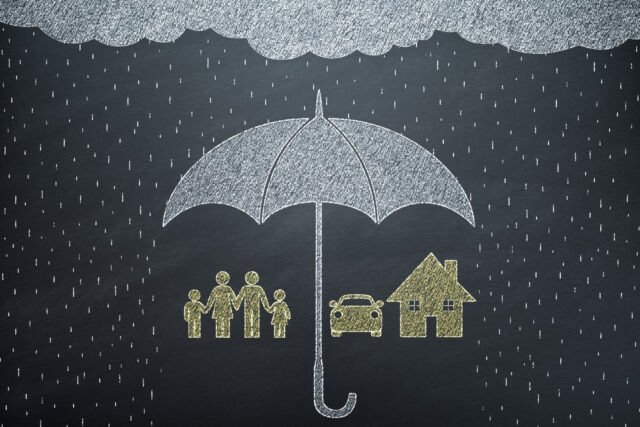
Insurance is a complicated topic, with a lot of terms to remember. It can be daunting if you’re trying to navigate the insurance world. However, it can get easy and fun if you have the right knowledge of the basics. This article will go over some common types of insurance useful for everyone, car, life, and health insurance.
Life Insurance

Life insurance provides a death benefit to beneficiaries in the event of the death of the insured. The life insurance contract can cover funeral expenses, pay off debts or provide income for a spouse or children if they are left behind.
Life insurance is of utmost importance. Hence, most people have this. According to a Forbes Advisor survey, at least 3 in 4 Americans have life insurance. Many claims are processed annually as a part of life insurance. According to the Insurance Information Institute (III), life insurance claims totaled $790.8 billion in 2024.
There are different types of life insurance policies, such as whole life and term life. Whole-life policies have premiums and accumulators that build up cash value over time until the insured dies.
Term policies only pay out when the person dies during their specified term, which would be 10 years. For example, certain term plans are available on the G Adventures employee benefits package for staff members traveling internationally on our programs.
Media Liability Insurance

Media liability insurance is a type of insurance that covers the legal liability of a media organization. When an individual or group is injured by something published in the media, that person may sue for damages. Media liability insurance covers the costs of defending lawsuits against the media organization and court costs, damages, and settlements.
Many types of media exist in today’s world. There are newspapers, magazines, websites, and more. So what type of coverage applies to your business? There are two main types, newspaper coverage and magazine coverage, but each has its own set of considerations that must be considered when purchasing this kind of insurance policy.
Health Insurance

Health insurance can help you pay for medical care, including doctor’s visits and prescription drugs. Health insurance also covers other expenses related to being sick or injured, such as transportation to and from doctors’ offices, tests and diagnostic procedures, X-rays, and hospital stays.
Individuals may choose their private plans from an insurance company or sign up for Medicare online. If you already have health insurance through work, ask your employer about adding family members who aren’t covered by the company plan yet because they are too young or not employed full-time. Data from the Census.gov website shows that employer-based health insurance was the most common and covered more than half of the US population.
You can also look into other options employers offer that provide additional benefits beyond basic medical care. These include dental plans with orthodontic benefits, vision care programs, hearing aid coverage, prescription drug plans, long-term disability policies, life insurance policies, accidental death, and dismemberment policies.
Auto Insurance

Auto insurance covers and protects you and your car in the event of an accident. There are a few different kinds of auto insurance, comprehensive, collision, physical damage liability (PDL), personal injury protection (PIP), uninsured/underinsured motorist bodily injury (UMBI), and medical payments coverage.
You need auto insurance because if you get into an accident without it, you could pay for damages out-of-pocket, which can add up. Picking the right kind of policy is key so that you’re protected against financial loss as much as possible while still saving money on premiums.
Property Insurance

Property insurance is one of the most common types of coverage, and it protects you against losses due to damage or destruction. This type of coverage can be broken down into several categories:
- Homeowners Insurance: Covers you if fire, theft, storms, etc., damage your home.
- Renter’s Insurance: Protects your personal property in case of a fire or other disaster at your apartment or house.
- Condo Association Coverage: Covers disputes between condo owners and their associations over claims for construction defects on an owner’s unit.
The property insurance market is booming with the number of homeowners. According to Global Data, the global property insurance market is expected to grow at a CAGR of 5% between 2024 and 2025.
Liability Insurance

Liability insurance protects you from legal costs if you are sued for damages or other injuries caused by you, your property, or your animals. If someone is injured on your property and decides to sue for damages, liability insurance will cover all legal fees related to the case. Liability insurance also covers all medical expenses incurred by the plaintiff due to their injury.
For instance, cyber liability insurance is one of the types of this insurance. This covers a business’s financial and legal damages after a cyberattack. Cyberattacks can be costly, and having cyber liability insurance can help companies get back on track after an attack. Due to the increasing number of cyberattacks, businesses with cyber liability insurance have raised their limits by 15% to 30% in the past 2-3 years.
Umbrella Insurance

Umbrella insurance is personal liability coverage, like an extension to your home and auto policies. It’s designed to protect you from lawsuits that could arise from incidents not covered by these policies. According to Forbes Advisor, umbrella insurance takes effect when your “basis” liability limitations have been surpassed.
Umbrella insurance can help you avoid the costs of defending against a legal claim. For example, if someone sues you because they were injured while visiting your home, the price of defending yourself in court can get expensive quickly, especially if they win their case. Umbrella insurance helps mitigate that risk by covering those expenses up front and saving you money on legal fees.
Conclusion
As you can see, there are many different types of insurance. If you’re looking for coverage, it’s essential to know what each type offers and whether or not it fits your needs. It may also be helpful to talk with a professional who can help make sense of it all.









